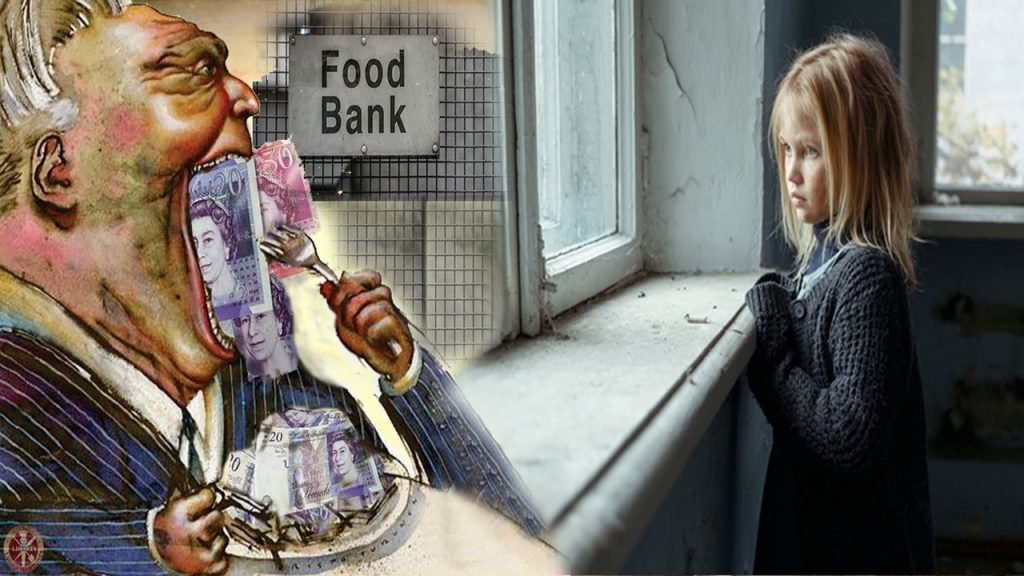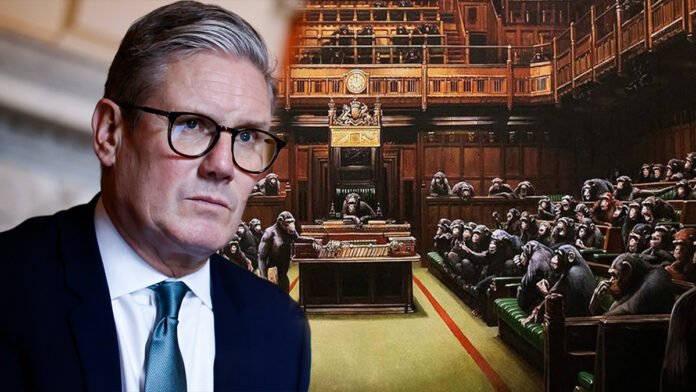Prime Minister, Sir Keir Starmer has suspended seven Labour MPs for daring to vote against the government’s cruel two-child benefit cap.
Sir Keir Starmer suffered his first rebellion as the Scottish National Party brought an amendment to throw out the cruel two-child benefit cap, which has been widely criticised by child poverty charities and campaigners.
Charities, unions and even former home secretary Suella Braverman have all urged the new PM to dump the cap, brought in nearly a decade ago as one of George Osborne’s austerity measures.
The charity Action for Children has called the policy “cruel” and warned it “creates and entrenches” child poverty.
During the general election, Labour refused to say it would scrap the cap, warning the state of the public finances meant it could not afford to make a pledge which would cost £3bn.
This draconian policy, which even some Tories found too heartless, affects over 450,000 families and leaves 1.6 million children – one in nine in the UK – wanting. But apparently, that’s a small price to pay for Starmer’s geopolitical ambitions.
While Starmer proclaims with the hollow righteousness of a modern-day Pharisee. “Country First, Party Second,” we have to ask: which country? Certainly not the United Kingdom, where his policies paint a grim picture of misplaced priorities and callous indifference.
The reality comes when you realise Starmer has pledged £3 billion annually to Ukraine “for as long as it takes”. to fight another US proxy war. It seems in Starmer’s Labour, foreign military adventures trump feeding hungry British children every time.
Let’s not mince words here. This is a betrayal so profound it would make Judas Iscariot pause for thought. Starmer, the self-proclaimed champion of Labour values, has effectively written a blank cheque for war while telling British families to tighten their belts. It’s a performance worthy of any Red Tory.
Despite there being no question of Labour losing a vote on the issue given its majority of 174, parliamentarians said they were alarmed by the strength of warnings from whips about rebelling early in the parliament. The amendment failed by 363 votes to 103, a majority of 260 for Labour.
Seven Labour MPs found the hypocrisy too much to swallow and voted with the SNP to throw out the two-child cap.

The suspended MPs, including former shadow chancellor John McDonnell, had the temerity to vote for an SNP motion to scrap the benefit cap. Their crime? Putting country before party – the very principle Starmer claims to uphold. The irony is thicker than a Westminster expense claim.
Key figures from the left of the party, including the former shadow chancellor, John McDonnell, who said ahead of the vote: “I don’t like voting for other parties’ amendments but I’m following Keir Starmer’s example as he said put country before party.”
Starmer justifies his Ukrainian largesse with the tired “domino theory”, a piece of Cold War rhetoric so outdated it should be in a museum. He’d have us believe that without our intervention, democracy itself would crumble. One wonders if he’s been reading too much Tom Clancy and not enough about the realities of 21st-century geopolitics.
The contrast between Starmer’s international generosity and domestic austerity is stark. It’s as if he’s playing at being a statesman on the world stage while forgetting the very people who put Labour in power. This isn’t just a policy disagreement; it’s a fundamental betrayal of Labour’s core values.
Jeremy Corbyn, now relegated to the backbenches, urged his colleagues: “Stick to your principles, stand up for what you know is right, and be a voice for the kinder society your constituents deserve.” Wise words, but apparently falling on deaf ears in Starmer’s new, ‘electable’ Labour.
Along with McDonnell, Apsana Begum; Richard Burgon; Ian Byrne; Imran Hussain; Rebecca Long-Bailey; and Zarah Sultana all voted for the amendment, and 42 Labour MPs did not vote.
All seven have had the whip suspended for six months, when there will be a review.
Others however carried out a display of political gymnastics that would have put a contortionist back out of joint, MP Kim Johnson said she decided to vote with the government “for unity”, but had previously submitted her own amendment that was not selected. Speaking in the chamber on Monday, she said her Liverpool Riverside constituency was the most deprived in the country, with 47% of children living in poverty.
“It is not a question of whether we can afford to adopt vital policies to alleviate child poverty, such as lifting the two-child cap; it is a question of whether we can afford not to,” she told the House of Commons, saying her focus was “debate, not division”.
So it seems now we are asked to believe that starving children is somehow a path to national cohesion, just as we are expected to swallow the notion that war brings peace. At this rate, we shall soon be chanting that ignorance is strength, while our poorest communities continue to languish in deprivation.
The Party told you to reject the evidence of your eyes and ears.
― George Orwell, 1984
It was their final, most essential command.
Johnson’s capitulation to Party lines, despite her earlier attempts at rebellion, serves as a stark reminder of the hollow nature of much political rhetoric. It is a damning indictment of a system where loyalty to party often trumps the pressing needs of constituents. In the face of such crushing poverty, one must ask: what price unity? And more importantly, unity for whom?
At the weekend, Labour MP Rosie Duffield warned the two-child cap amounted to “social cleansing” and was an “anti-feminist and unequal piece of legislation”.
“It legislates against women’s autonomy over their own bodies, the exact opposite of anything that could possibly be described as a Labour Party value,” she wrote in an article for The Sunday Times.
Starmer’s response to criticism? “There is no silver bullet,” he says. Perhaps not, Sir Keir, but there’s certainly a loaded gun – and you’ve aimed it squarely at Britain’s most vulnerable families while funnelling billions into a foreign conflict.
In the end, this debacle reveals the true face of Starmer’s Labour: authoritarian in style, neoliberal in substance, and seemingly more concerned with international posturing than the welfare of British citizens. It’s a far cry from the party of Clement Attlee and Aneurin Bevan.
As we watch this sorry spectacle unfold, one can’t help but wonder: if this is what Labour stands for now, who stands for the working people of Britain?
Support Independent Journalism Today
Our unwavering dedication is to provide you with unbiased news, diverse perspectives, and insightful opinions. We're on a mission to ensure that those in positions of power are held accountable for their actions, but we can't do it alone. Labour Heartlands is primarily funded by me, Paul Knaggs, and by the generous contributions of readers like you. Your donations keep us going and help us uphold the principles of independent journalism. Join us in our quest for truth, transparency, and accountability – donate today and be a part of our mission!
Like everyone else, we're facing challenges, and we need your help to stay online and continue providing crucial journalism. Every contribution, no matter how small, goes a long way in helping us thrive. By becoming one of our donors, you become a vital part of our mission to uncover the truth and uphold the values of democracy.
While we maintain our independence from political affiliations, we stand united against corruption, injustice, and the erosion of free speech, truth, and democracy. We believe in the power of accurate information in a democracy, and we consider facts non-negotiable.
Your support, no matter the amount, can make a significant impact. Together, we can make a difference and continue our journey toward a more informed and just society.
Thank you for supporting Labour Heartlands









